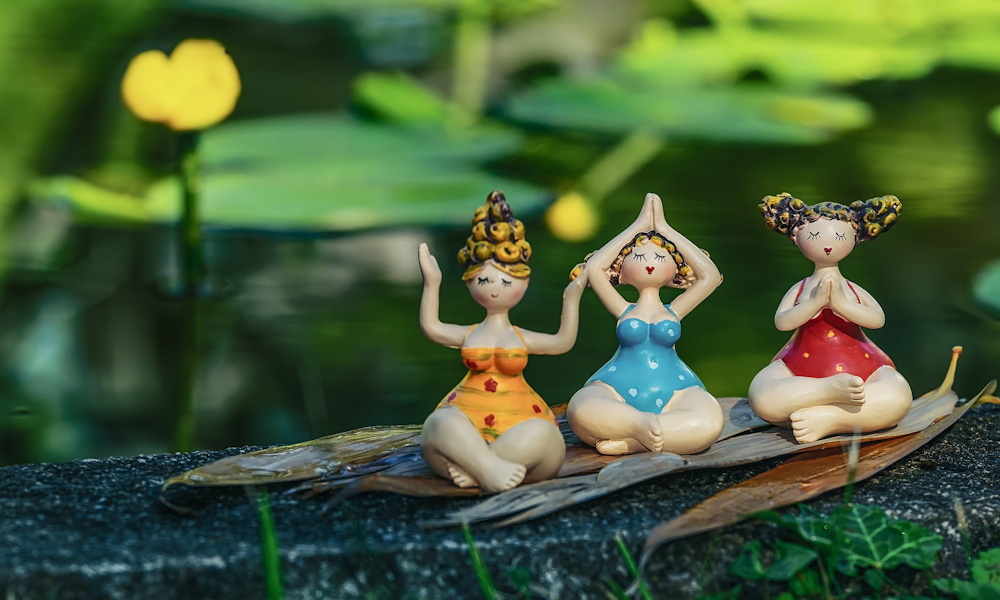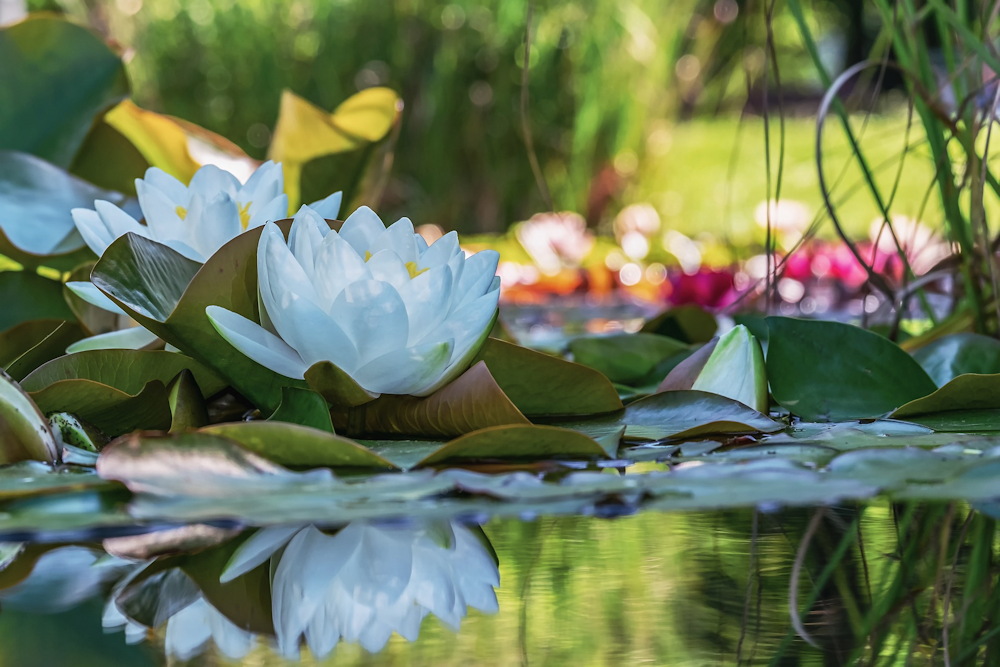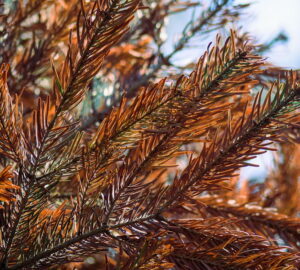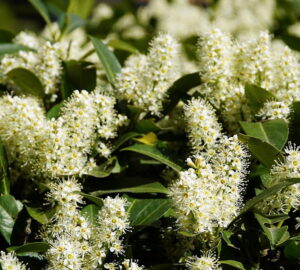As summer temperatures rise, garden ponds can face a variety of challenges. Prolonged heat can affect the water quality, plant health, and animal well-being. Understanding these impacts and knowing how to mitigate them is essential for maintaining a thriving pond ecosystem. This article provides insights and practical tips for garden pond care during periods of extreme summer heat.
The Impact of Heat on Pond Water
Water Temperature: Prolonged heat can significantly increase the water temperature in your garden pond. Warm water holds less oxygen, which can stress fish and other aquatic life. High temperatures can also accelerate the growth of algae, leading to murky water and potential algae blooms.
Evaporation: High temperatures can cause rapid water evaporation, leading to decreased water levels. This not only reduces the available habitat for pond life but also concentrates pollutants and toxins, further stressing the ecosystem.
Water Quality: Warm water encourages the proliferation of harmful bacteria and parasites. Reduced oxygen levels combined with increased waste from fish and decaying plant matter can lead to poor water quality, making it difficult for pond inhabitants to thrive.
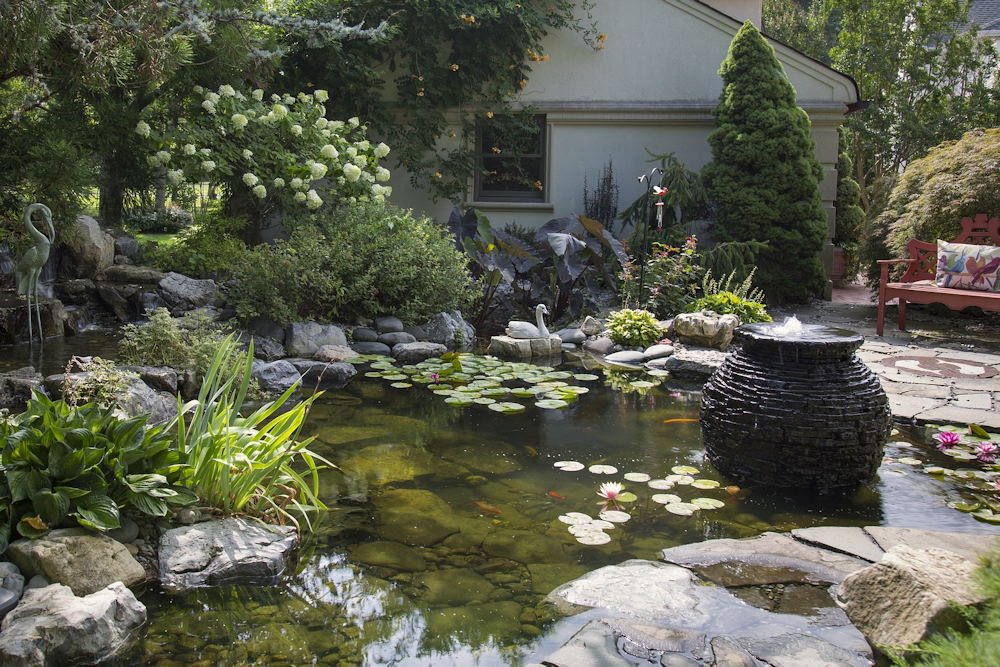
Effects of Heat on Aquatic Plants
Growth Patterns: While some aquatic plants thrive in warmer temperatures, others can suffer. Excessive heat can cause certain plants to grow too quickly, outcompeting others and disrupting the balance of your pond ecosystem.
Health and Vitality: Prolonged heat can cause wilting and browning of plant leaves. Floating plants like water lilies may provide shade and help cool the water, but they too can suffer from extreme temperatures, leading to reduced photosynthesis and growth.
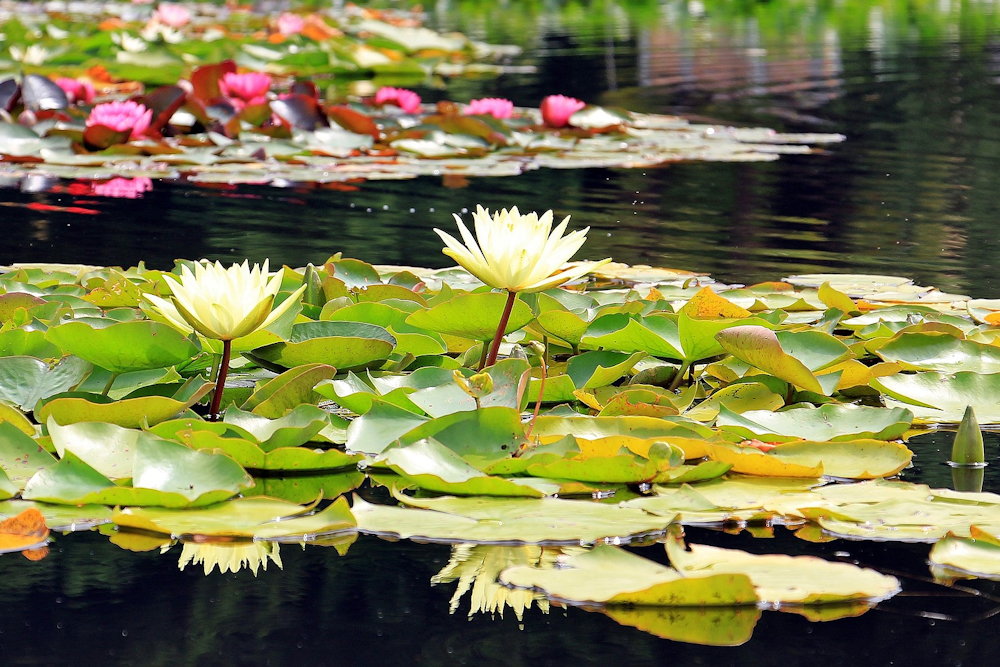
Impact on Pond Animals and Fish
Oxygen Levels: Fish and other aquatic animals rely on dissolved oxygen in the water. As temperatures rise and oxygen levels drop, fish may become stressed, leading to decreased activity, appetite, and overall health. In severe cases, low oxygen levels can result in fish kills.
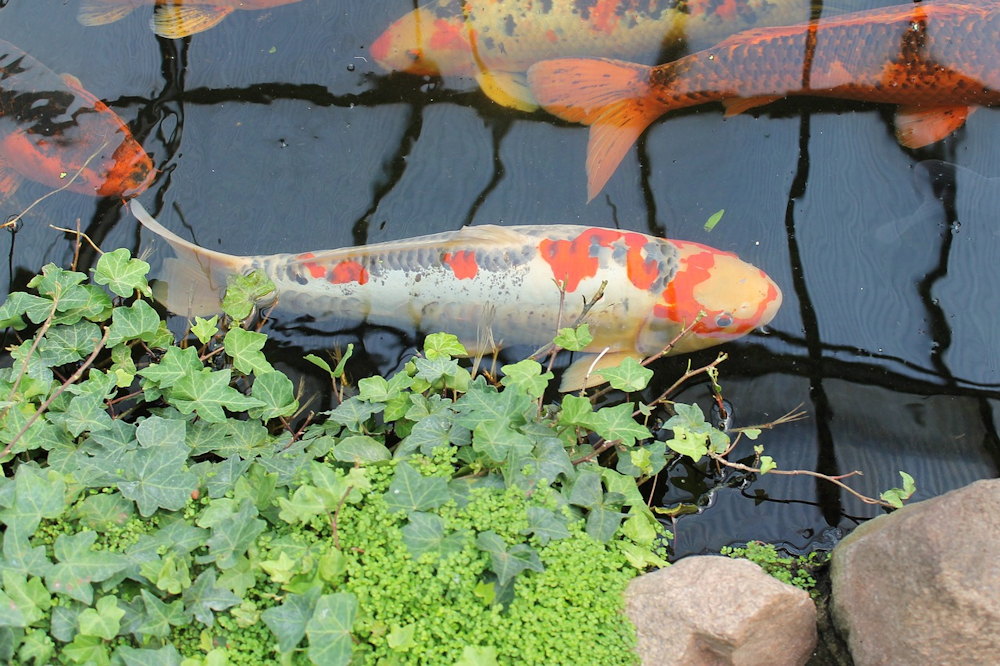
Behavioral Changes: High temperatures can cause fish to become more lethargic and seek out cooler, deeper parts of the pond. Amphibians, such as frogs, may also struggle to regulate their body temperature and find suitable habitats.
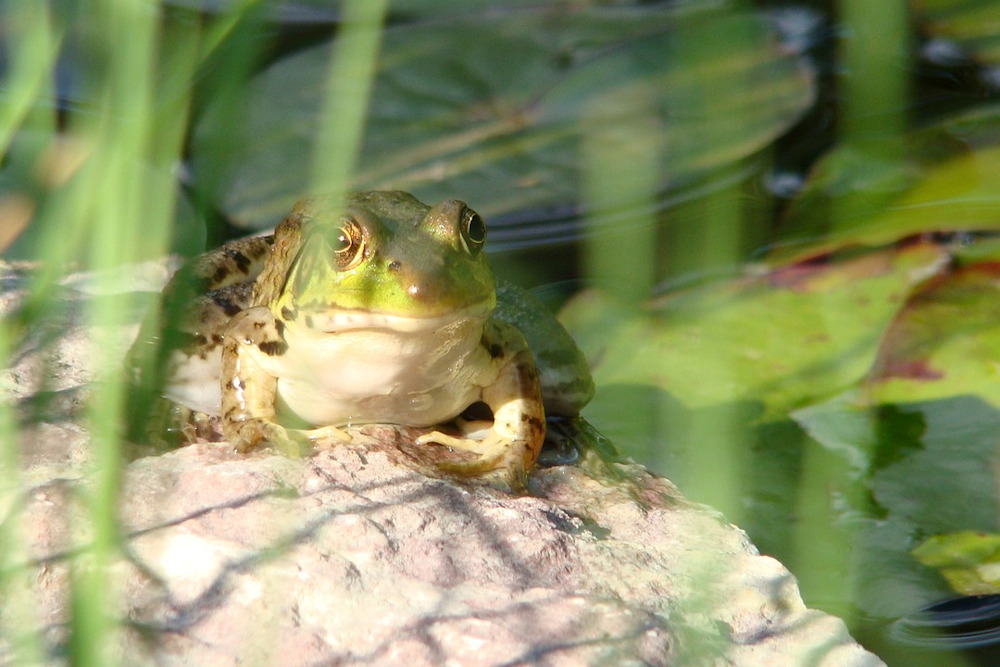
Disease and Parasites: Warm water is an ideal breeding ground for parasites and pathogens. Fish and other aquatic life are more susceptible to diseases during prolonged heatwaves, which can further exacerbate their stress and lead to health issues.
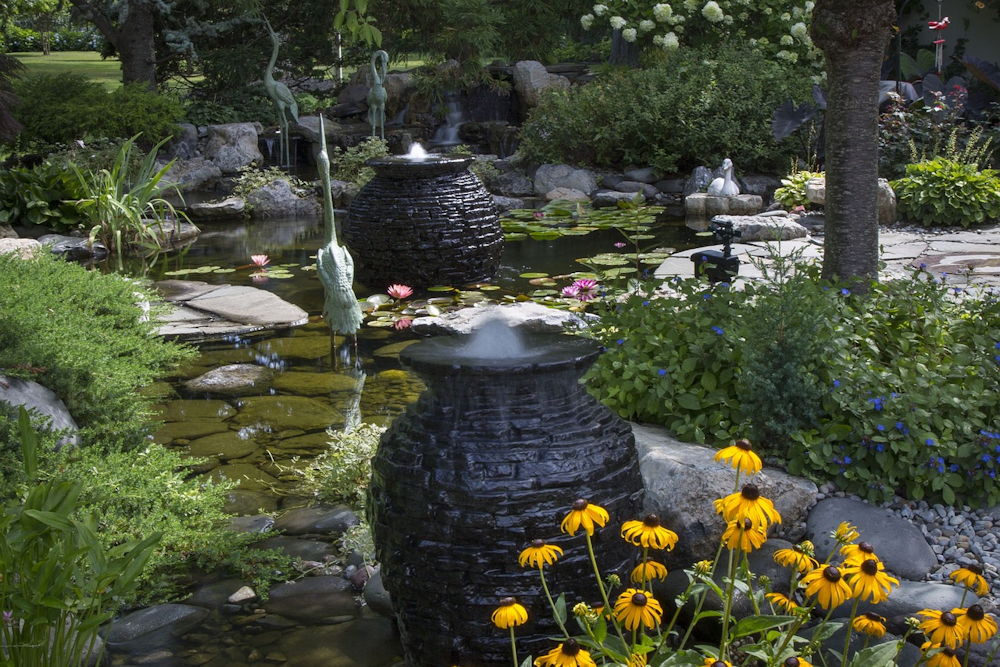
Tips for Maintaining Your Garden Pond in Extreme Heat
- Shade the Pond: Install shade structures or use floating plants like water lilies to provide cover and reduce direct sunlight. Shade helps keep the water temperature lower and reduces the risk of algae blooms.
- Increase Aeration: Use aerators, fountains, or waterfalls to increase water movement and oxygen levels. This helps mitigate the effects of warm water on fish and other aquatic life.
- Regular Water Changes: Perform partial water changes to maintain water quality and reduce the concentration of pollutants. Use dechlorinated water to top off the pond and compensate for evaporation.
- Monitor Water Levels: Check water levels regularly and add water as needed to prevent the pond from becoming too shallow. Shallow water heats up more quickly and can stress pond inhabitants.
- Control Algae Growth: Use natural methods like barley straw or beneficial bacteria to control algae growth. Avoid chemical treatments, as they can further stress the pond ecosystem.
- Feed Fish Sparingly: Overfeeding can lead to excess waste and deteriorate water quality. Feed fish only what they can consume in a few minutes and reduce feeding during extreme heat.
- Plant Maintenance: Trim overgrown plants and remove dead or decaying plant matter to prevent it from decomposing in the water and reducing oxygen levels.
- Install a Pond Thermometer: Regularly monitor the water temperature to stay informed about the conditions in your pond. This can help you take timely action if temperatures reach dangerous levels.
- Add Beneficial Bacteria: Introduce beneficial bacteria to help break down organic matter and maintain a healthy pond environment. These bacteria can improve water quality and reduce the risk of disease.
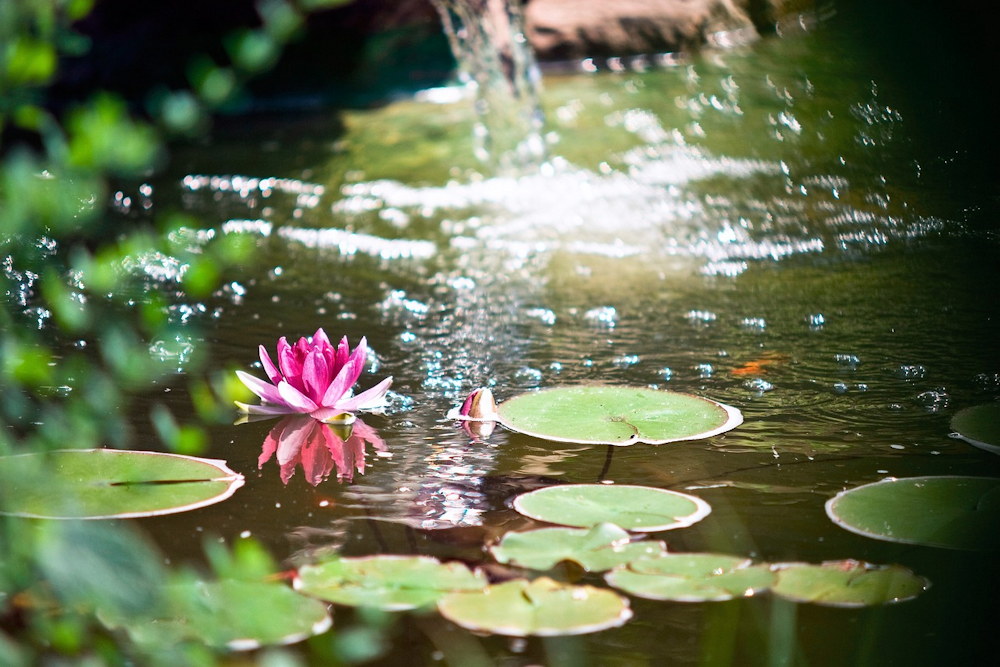
By taking proactive steps to manage your garden pond during extreme summer heat, you can ensure a healthy and vibrant ecosystem for your aquatic plants and animals. Regular monitoring and maintenance are key to keeping your pond thriving even in the hottest conditions. Enjoy the beauty and tranquility of your garden pond all summer long by implementing these essential care tips.



